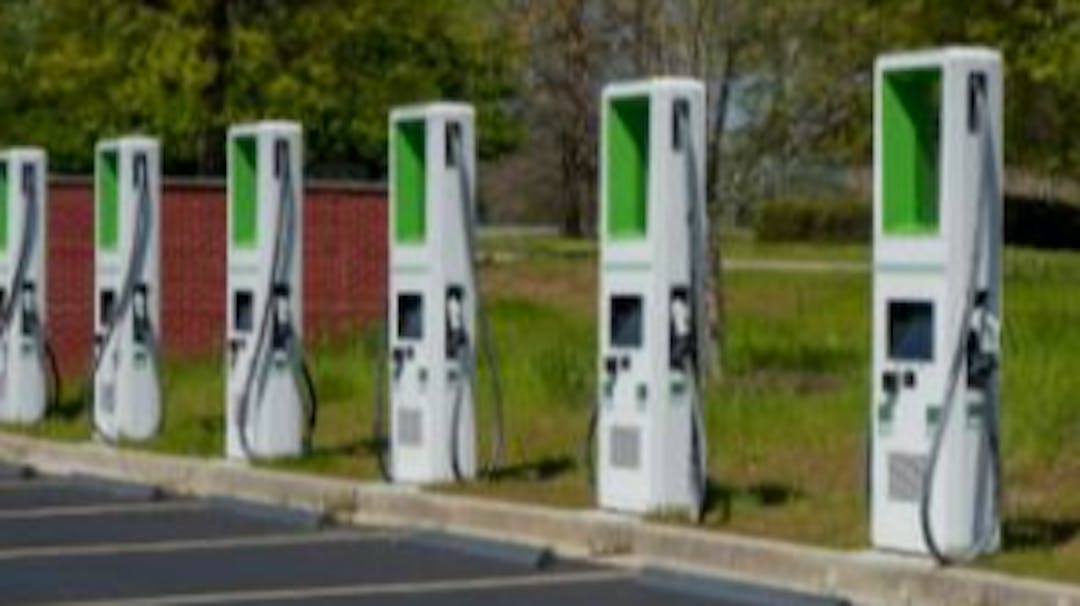Electric Vehicle Parking Ordinance - Approved
ARCHIVED
Thank you to everyone that participate in helping Broomfield Adopt EV Charger requirements for parking lot in new developments making Broomfield a municipal leader in adopting municipal code requirements supporting the transition to electric vehicles. This ordinance was replaced in 2023 when Broomfield adopted the Colorado State EV Charging Requirements into the Broomfield Municipal Code.

Project Summary
In 2022 Broomfield developed and adopted electric vehicle parking requirements for new development projects. This municipal code update specified the number of EV Capable, EV Ready, and EV Installed parking spaces required in parking lots for both residential and non-residential land uses. This ordinance was replaced in 2023 when Broomfield adopted the Colorado State EV Charging Requirements into the Broomfield Municipal Code.
On August 9, 2022, during a public hearing, City Council approved the electric vehicle (EV) ordinance, which will be effective on October 1, 2022.
On July 12, 2022, City Council reviewed a draft ordinance that proposed to establish a requirement for future new developments to incorporate EV charging stations within a portion of the overall parking that would be provided. To review the results of the first review (commonly referred to as the first reading) please access this link to the July 12 meeting.
Applicability: The requirement to provide EV parking is applicable to only new development and not existing residences or businesses.
Location: The regulations are applicable throughout the City and County of Broomfield.
Background: Sustainability is a focal point of social, economic, and environmental health in the City and County of Broomfield. In 2020, the City Council passed Resolution 2020-169, charting the course for a more sustainable future for Broomfield and setting a goal of 26% reduction of Greenhouse Gas (GHG) Emissions by 2025, 50% by 2030, and 90% by 2050. This resolution also set stringent goals for organization-wide operations at the City and County of Broomfield: 30% reduction by 2025, 60% by 2030, 90% by 2045, and 100% by 2050. One way to help meet these GHG reductions goals is to promote electric vehicle (EV) ownership.
Project Type: Ordinance regarding electric vehicle parking requirements
Project Description: The ordinance outlines electric vehicle (EV) parking requirements for new development specific to new residential and non-residential uses.
Draft Ordinance No. 2186: IEV parking spaces are required at the following ratios:
One Family Residential (attached and detached dwellings) - New single family and duplex dwellings must include at least one EV-Ready parking space per dwelling unit. EV-Ready parking spaces have a 40A (amp), 240V dedicated branch circuit for the future installation of an EV charger.
Minimum EV Parking Spaces for One Family Dwelling, Attached or Detached Residential Development (including townhomes)
Min. EV-Capable | 0 |
Min. EV-Ready | 1 per dwelling unit |
Min. EV-Installed | 0 |
Definitions
Level 1 electric vehicle charger. Level 1 electric vehicle charger means charging an electric vehicle through a 120 V AC plug. Does not require installation of additional charging equipment.
Level 2 electric vehicle charger. Level 2 electric vehicle charger means charging an electric vehicle through a 240 V (for residential) or 208 V (for commercial) plug. Requires installation of additional charging equipment.
EV Capable - This term indicates that an electrical panel has adequate capacity and raceway (conduit) is in place to allow for low cost and easy installation of wiring and other EV infrastructure in the future. The rationale for this level of readiness is that it provides the hard-to-retrofit elements necessary for EV Charger deployment during new construction, while minimizing up front costs.
EV-Ready - EV ready or full circuit installation includes installation of 208/240V, 40-amp panel capacity, a raceway (conduit), wiring, receptacle, and overprotection devices similar to a dryer circuit. The rationale for EV-Ready is that these full circuits are “plug and play” ready, essentially only requiring a charging station for them to be plugged in to be fully operational. This remains less expensive than installing a charging station, but ensures that charging stations can be installed rapidly and with little expense beyond the charger station hardware.
EV Installed - This includes a full installation of a functional charging station, including the supporting infrastructure outlined in the EV-Ready definition. This supports EV charging and reduces future EV charger installation costs to $0.0.
Project Status: The City Council approved the ordinance on August 9, 2022; this will be effective October 1, 2022.









